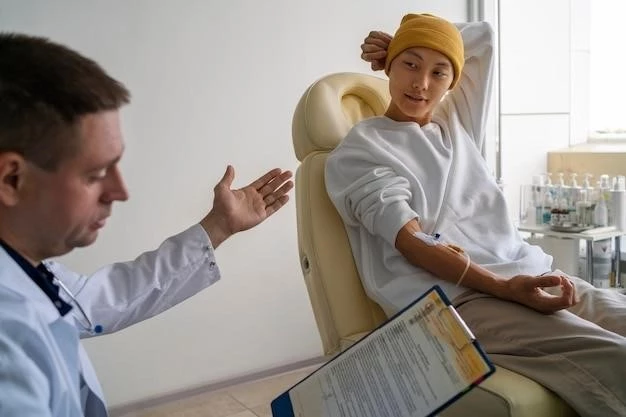Understanding Ablepharon Macrostomia Syndrome
It is crucial to explore the causes of Ablepharon Macrostomia Syndrome to understand its development. Identifying symptoms early is key for prompt diagnosis. Stay informed about the latest research updates and utilize available support resources for comprehensive care.
Causes of Ablepharon Macrostomia Syndrome
Ablepharon Macrostomia Syndrome is a rare congenital disorder with causes related to genetic mutations. It is often associated with abnormalities in the development of the skin, muscles, and other tissues during early fetal growth. These genetic mutations can impact the formation of facial features, leading to the characteristic eye and mouth abnormalities seen in this syndrome. While the exact genetic factors contributing to the syndrome may vary among individuals, understanding these underlying causes is essential for diagnosis and treatment planning.
Symptoms of Ablepharon Macrostomia Syndrome
Ablepharon Macrostomia Syndrome manifests with distinct physical characteristics. Common symptoms include absent or underdeveloped eyelids (ablepharon), wide mouth with a full or cleft appearance (macrostomia), and abnormalities in the structures of the ears and nose. Additionally, individuals may exhibit skin abnormalities and intellectual disabilities. Recognizing these symptoms is crucial for early detection and appropriate management of the syndrome.
Diagnosis of Ablepharon Macrostomia Syndrome
Diagnosing Ablepharon Macrostomia Syndrome typically involves a thorough physical examination by healthcare professionals familiar with rare genetic disorders. In addition to assessing the characteristic features of the syndrome, genetic testing may be recommended to confirm specific genetic mutations associated with the condition. Imaging studies and consultations with specialists such as geneticists and dermatologists can aid in accurate diagnosis and appropriate management strategies tailored to the individual’s needs.
Treatment Options for Ablepharon Macrostomia Syndrome
Managing Ablepharon Macrostomia Syndrome requires a multidisciplinary approach tailored to each individual’s needs. Treatment options may include surgery to address eyelid and mouth abnormalities, as well as supportive therapies to manage associated skin and developmental issues. Regular monitoring by healthcare providers, including specialists in ophthalmology, plastic surgery, and genetics, can help optimize care and quality of life for individuals with this rare syndrome. Collaborating with a medical team experienced in rare genetic disorders is recommended for comprehensive treatment planning.
Prognosis of Ablepharon Macrostomia Syndrome

The prognosis for individuals with Ablepharon Macrostomia Syndrome can vary depending on the severity of symptoms and associated complications. Early intervention, including surgical and supportive therapies, can improve quality of life and functional outcomes. Regular follow-up care and monitoring are essential to address any emerging issues promptly. While Ablepharon Macrostomia Syndrome presents challenges, a collaborative approach involving healthcare providers, therapists, and support networks can positively impact long-term prognosis and overall well-being.
Genetic Factors in Ablepharon Macrostomia Syndrome
Ablepharon Macrostomia Syndrome is predominantly linked to genetic mutations affecting the development of facial features and skin; Variations in specific genes can disrupt normal embryonic growth, leading to the distinct characteristics seen in individuals with this syndrome. Understanding the genetic factors underlying Ablepharon Macrostomia Syndrome is crucial for accurate diagnosis, genetic counseling, and potential future advancements in targeted therapies. Genetic testing and consultation with genetic specialists can provide valuable insights into the inheritance patterns and potential risks associated with this rare genetic disorder.
Research Updates on Ablepharon Macrostomia Syndrome
Ongoing research on Ablepharon Macrostomia Syndrome focuses on enhancing understanding of the genetic mechanisms involved in the condition, exploring potential treatment options, and improving diagnostic approaches. Recent studies aim to identify novel genetic variants associated with the syndrome, paving the way for personalized therapies and targeted interventions. Staying informed about the latest research updates can provide valuable insights for healthcare providers, researchers, and individuals affected by Ablepharon Macrostomia Syndrome.
Support and Resources for Ablepharon Macrostomia Syndrome
Individuals and families affected by Ablepharon Macrostomia Syndrome can benefit from accessing various support networks and resources. Organizations dedicated to rare genetic disorders offer information, guidance, and connections to specialists for comprehensive care. Online forums and support groups provide a platform for sharing experiences and receiving emotional support from others facing similar challenges. Additionally, genetic counselors can offer valuable insights and assistance in navigating the complexities associated with the syndrome. Utilizing available support and resources can help individuals cope effectively with the impact of Ablepharon Macrostomia Syndrome on their lives.
